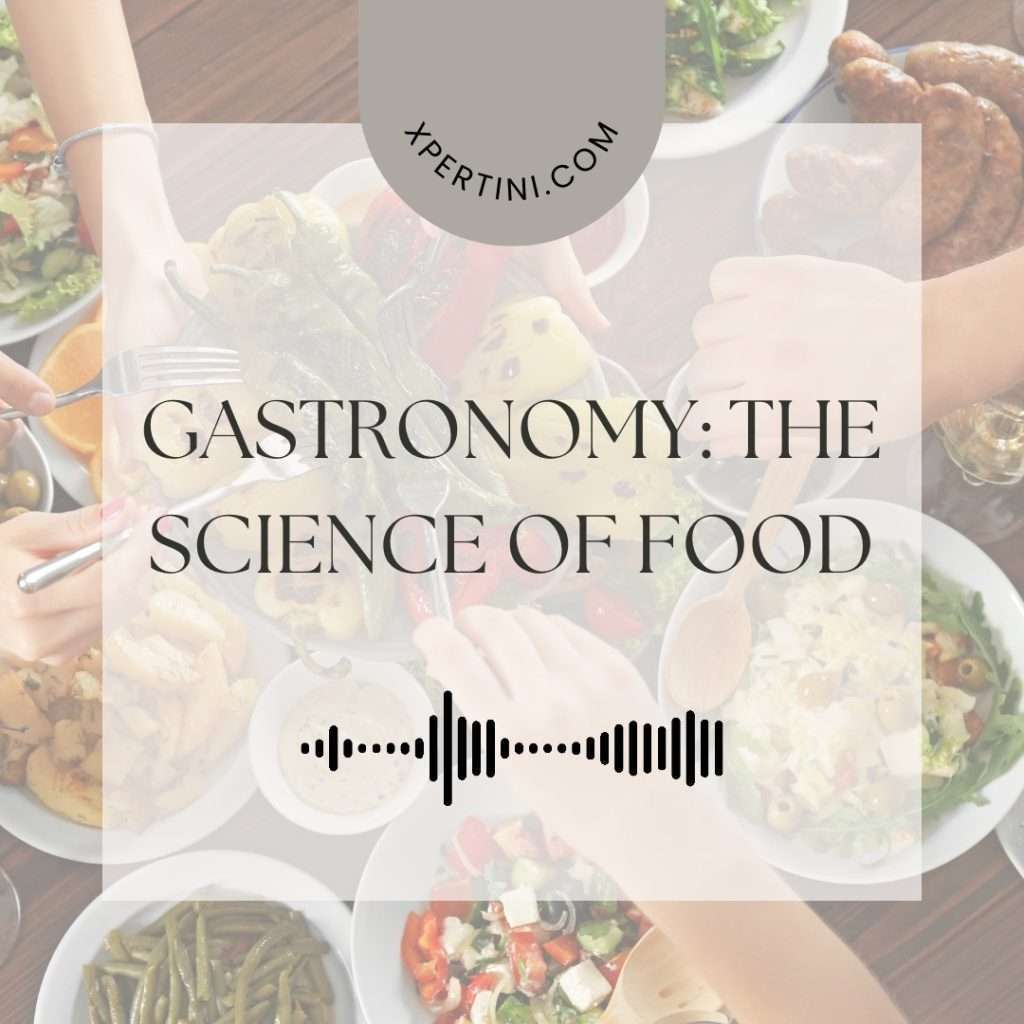Gastronomy: The Science of Food
Course Summary
In this comprehensive course on gastronomy and food science, students embark on a journey exploring the multifaceted world of food, from its fundamental scientific principles to its diverse culinary applications. Throughout the course, learners gain a deep understanding of the science behind taste perception, flavor development, and nutritional analysis. They delve into the interplay between aroma, texture, and temperature, discovering how these factors influence the overall flavor profile of various foods.
The course provides an insightful overview of the vast array of career opportunities available in the gastronomy and food science industries. Students learn about the different career paths, ranging from culinary arts and food production to nutrition and food technology. They gain valuable insights into the skills and qualities required for success in these fields, including creativity, attention to detail, and effective communication.
Furthermore, the course equips students with practical knowledge on pursuing education and professional development in the gastronomy and food science domains. They explore the importance of formal education, professional certifications, and hands-on experience through internships and work opportunities. By understanding the significance of continuous learning and skill enhancement, students prepare themselves to thrive in the ever-evolving food industry.
Throughout the course, students are encouraged to engage actively in their learning journey, fostering a culture of curiosity and exploration. They are challenged to think critically, problem-solve creatively, and collaborate effectively with peers. By embracing a growth mindset and a passion for culinary excellence, students emerge from the course equipped with the knowledge, skills, and confidence to pursue fulfilling careers in gastronomy and food science.
In essence, this course serves as a gateway to a world of endless possibilities in the gastronomy and food science fields, empowering students to make meaningful contributions to the culinary landscape while promoting health, sustainability, and culinary innovation.
Course Overview
Gastronomy: The Science of Food offers a deep dive into the fascinating world of food from a scientific perspective. This course explores the relationship between food and science, revealing the mysteries behind what we eat, how it’s prepared, and its impact on our health and culture.
Course Objectives
Understand the scientific principles underlying food preparation and cooking techniques.
Explore the historical evolution of gastronomy and its cultural significance.
Analyze the chemical composition of ingredients and their effects on taste and nutrition.
Apply scientific methods to optimize food quality, flavor, and presentation.
Investigate the role of technology in modern gastronomy and food innovation.
Examine the impact of food choices on health, sustainability, and the environment.
Develop critical thinking and problem-solving skills in culinary science.
Cultivate creativity in recipe development and culinary experimentation.
Appreciate the cultural diversity of global cuisines and culinary traditions.
Explore career opportunities in the field of gastronomy and food science.
Course Outcomes
Able to analyze the chemical composition of food ingredients.
Demonstrate proficiency in applying various cooking techniques.
Understand the historical evolution of gastronomy.
Able to evaluate the nutritional value of different foods.
Develop creative approaches to food presentation and plating.
Demonstrate knowledge of food safety and sanitation practices.
Analyze the cultural significance of food in different societies.
Apply scientific principles to optimize food texture and flavor.
Critically evaluate the environmental impact of food production and consumption.
Explore career pathways in gastronomy and food science.
Course Audience
Aspiring chefs and culinary professionals seeking to deepen their understanding of the science behind food.
Food enthusiasts and hobbyists interested in exploring the scientific principles of cooking and gastronomy.
Students pursuing studies in nutrition, food science, or related fields.
Professionals in the food industry looking to expand their knowledge and skill set.

